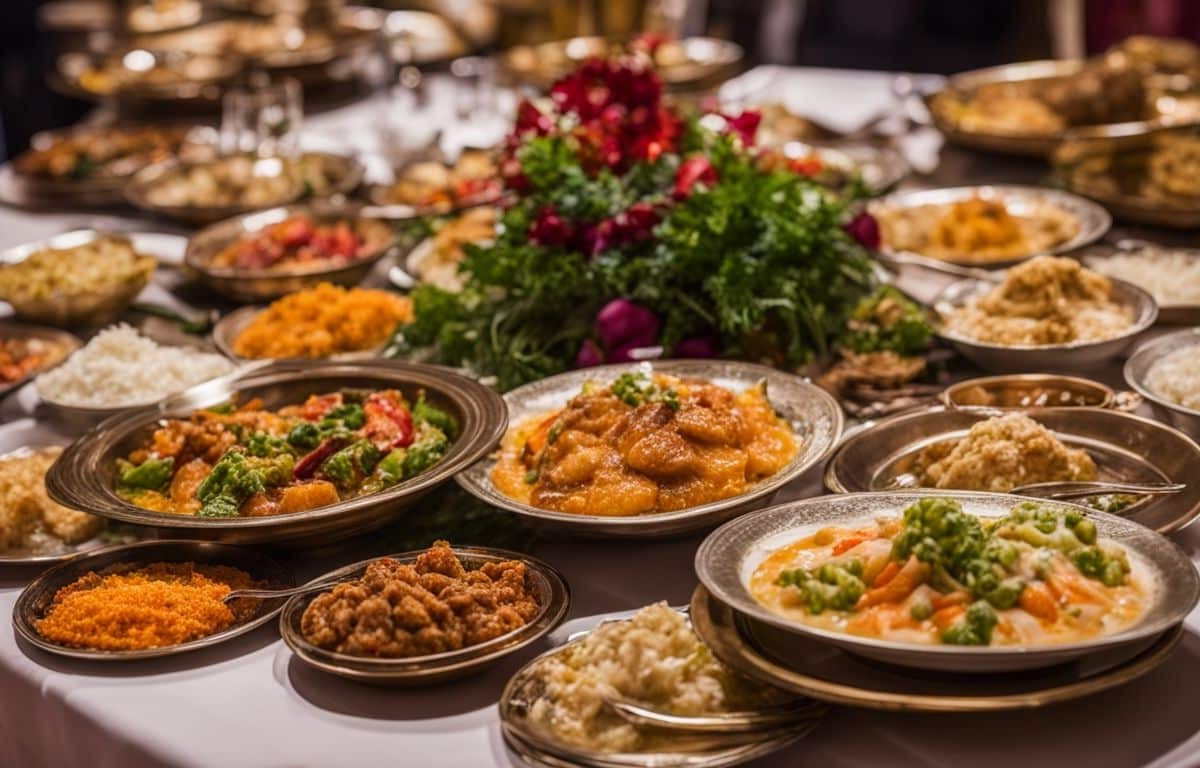
Feasts have been a part of human culture for centuries, bringing people together to celebrate, honor, and enjoy. But what makes these gatherings so special? Feasts are more than just large meals; they are rich with traditions, history, and meaning. From ancient harvest festivals to modern holiday dinners, these events reflect the values and customs of different societies. Did you know that the first Thanksgiving feast in America lasted three days? Or that the ancient Romans had a festival called Saturnalia, which influenced many of our current holiday traditions? Whether it's a religious observance, a national holiday, or a family reunion, feasts play a significant role in our lives. Let's dive into 27 fascinating facts about feasts that will make you appreciate these gatherings even more!
What is a Feast?
Feasts have been an integral part of human culture for centuries. They are more than just meals; they are celebrations of life, community, and tradition. Here are some fascinating facts about feasts that might surprise you.
- The word "feast" comes from the Latin word "festum," meaning festival or holiday.
- Ancient Egyptians held feasts to honor their gods, with elaborate offerings of food and drink.
- Medieval banquets often lasted several days, featuring multiple courses and entertainment like jousting and music.
- The first Thanksgiving feast in 1621 lasted three days and included venison, fowl, and corn.
- In Japan, the Osechi Ryori feast is a New Year's tradition, with each dish symbolizing a wish for the coming year.
- The Indian festival of Diwali includes a feast with sweets like ladoos and barfis, symbolizing the victory of light over darkness.
Feasts in Different Cultures
Feasts vary widely across cultures, each with its unique customs and foods. Let's explore some of these diverse traditions.
- In China, the Lunar New Year feast includes dishes like dumplings and fish, symbolizing prosperity and abundance.
- The Ethiopian feast of Meskel celebrates the finding of the True Cross with traditional foods like injera and doro wat.
- During the Jewish festival of Passover, a Seder feast is held, featuring symbolic foods like matzo and bitter herbs.
- The Mexican Day of the Dead feast includes offerings of favorite foods and drinks to honor deceased loved ones.
- In Greece, Easter is celebrated with a feast featuring lamb, symbolizing Christ's sacrifice.
- The Brazilian Carnival includes street feasts with foods like feijoada and coxinhas, celebrating the days leading up to Lent.
Historical Feasts
Some feasts have left a lasting impact on history, influencing cultures and traditions for generations.
- The Roman Saturnalia was a week-long feast in December, where social norms were reversed, and slaves dined with their masters.
- The Viking Yule feast celebrated the winter solstice with hearty foods and mead, marking the return of longer days.
- The Aztec feast of Toxcatl honored the god Tezcatlipoca with ritual sacrifices and elaborate meals.
- The Renaissance era saw the rise of grand feasts hosted by nobility, showcasing wealth and power through extravagant dishes.
- The French Revolution led to the decline of aristocratic feasts, replaced by more egalitarian public celebrations.
- The Victorian era introduced the Christmas feast as we know it today, with turkey, plum pudding, and mince pies.
Modern Feasts
Feasts continue to evolve, reflecting contemporary values and lifestyles. Here are some modern takes on traditional feasting.
- The American Super Bowl party has become a modern feast, with foods like chicken wings, nachos, and chili.
- Friendsgiving is a growing trend, where friends gather for a Thanksgiving-style feast, often with a potluck format.
- The Italian Ferragosto feast on August 15th celebrates summer with barbecues and beach picnics.
- In South Korea, Chuseok is a harvest festival featuring a feast with rice cakes, fruits, and vegetables.
- The Australian Christmas feast often includes seafood like prawns and oysters, reflecting the summer season.
- Vegan and vegetarian feasts are becoming more popular, with plant-based dishes taking center stage at celebrations.
Fun Feast Facts
Feasts are not just about food; they are rich in interesting tidbits and trivia. Here are some fun facts to chew on.
- The world's largest feast was held in India in 2019, serving over 200,000 people in a single sitting.
- The longest banquet table ever recorded stretched over 1.5 miles, set up in Saudi Arabia in 2017.
- The most expensive feast in history was hosted by Roman Emperor Elagabalus, featuring dishes like peacock tongues and camel heels.
Feasts: A Tapestry of Culture and History
Feasts have always been more than just meals. They’re a celebration of culture, history, and community. From ancient harvest festivals to modern holiday dinners, these gatherings bring people together, creating memories and traditions. They reflect the values, beliefs, and creativity of different societies. Whether it’s a grand banquet or a simple family meal, the essence of feasting lies in sharing and connection.
Understanding the significance of these events helps us appreciate the diversity and richness of human experience. So next time you sit down for a feast, remember you’re part of a tradition that spans centuries and continents. Enjoy the food, the company, and the stories that come with it. Feasts remind us of our shared humanity and the joy of coming together.
Was this page helpful?
Our commitment to delivering trustworthy and engaging content is at the heart of what we do. Each fact on our site is contributed by real users like you, bringing a wealth of diverse insights and information. To ensure the highest standards of accuracy and reliability, our dedicated editors meticulously review each submission. This process guarantees that the facts we share are not only fascinating but also credible. Trust in our commitment to quality and authenticity as you explore and learn with us.
